HS-ESS3-6
Use a computational representation to illustrate the relationships among Earth systems and how those relationships are being modified due to human activity.
-
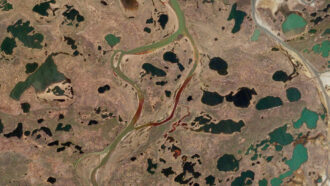 Climate
ClimateSiberian heat wave that caused an oil spill made more likely by climate change
The six-month heat wave in Siberia during the first half of 2020 would not have happened without human-caused climate change, researchers find.
-
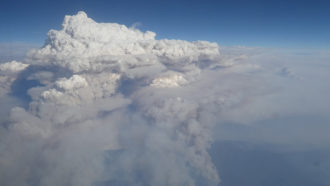 Environment
EnvironmentAustralian wildfires pumped smoke to record heights
Wildfires in Australia in late December and early January spurred an unusual smoke plume that still hasn’t fully dispersed.
-
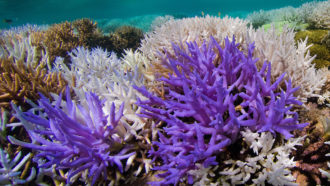 Oceans
OceansGoing bright may help corals recover from bleaching
When some corals bleach, they turn neon colors. Flashy hues may be part of a response that helps these corals recover and reunite with their algae.
-
 Health & Medicine
Health & MedicineDeadly heat: Expected by century’s end, it’s here already
Instances of hot and humid conditions that threaten human lives are on the rise.
-
 Environment
EnvironmentFossil fuels appear to release far more methane than we thought
Ice cores reveal less methane than expected. This suggests today’s fossil fuel industry is responsible for nearly all of the methane emissions from natural sources today.
-
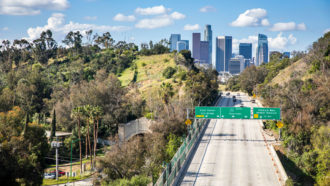 Science & Society
Science & SocietyCO2 emissions have nosedived as COVID-19 keeps people home
The COVID-19 pandemic restricted travel that can pollute the air. By April, travel-related daily emissions of greenhouse gases was back to 2006 levels.
-
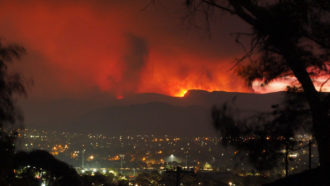 Climate
ClimateClimate change drove Australian wildfires to extremes
Australia’s devastating 2019–2020 wildfires were at least 30 percent more likely because of human-caused climate change.
-
 Climate
ClimateHow to curb the climate heating by contrails
Contrails are narrow clouds left behind in the sky by jets. They add to climate change. But a new study suggests a way to curb their contribution.
-
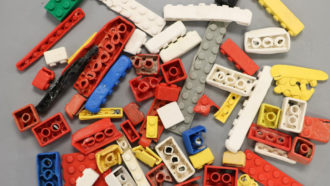 Environment
EnvironmentLegos could last a disturbingly long time in the ocean
By looking at toys washed up on beaches, scientists have estimated how long it takes hard plastics to break down in the oceans. And it’s a long time.
-
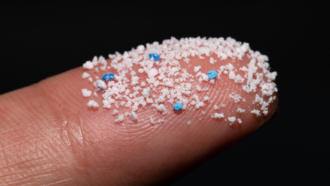 Earth
EarthHelp for a world drowning in microplastics
Microplastic pollution in our oceans and lakes is a problem. Scientists are testing solutions — from more biodegradable recipes to nanotechnology.
By Sharon Oosthoek and Maria Temming -
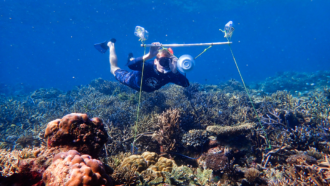 Oceans
OceansHealthy coral reef sounds attract fish searching for a home
Playing the sounds of a healthy reef can help attract fish to dying corals, helping rebuild their community.
-
 Climate
Climate5 things to know about the climate-saving benefits of tree planting
A recent analysis of the benefits of massive efforts to plant more trees triggered a firestorm of controversy.
By Susan Milius